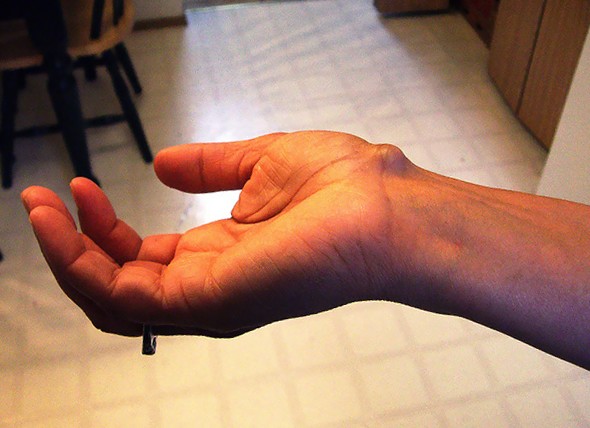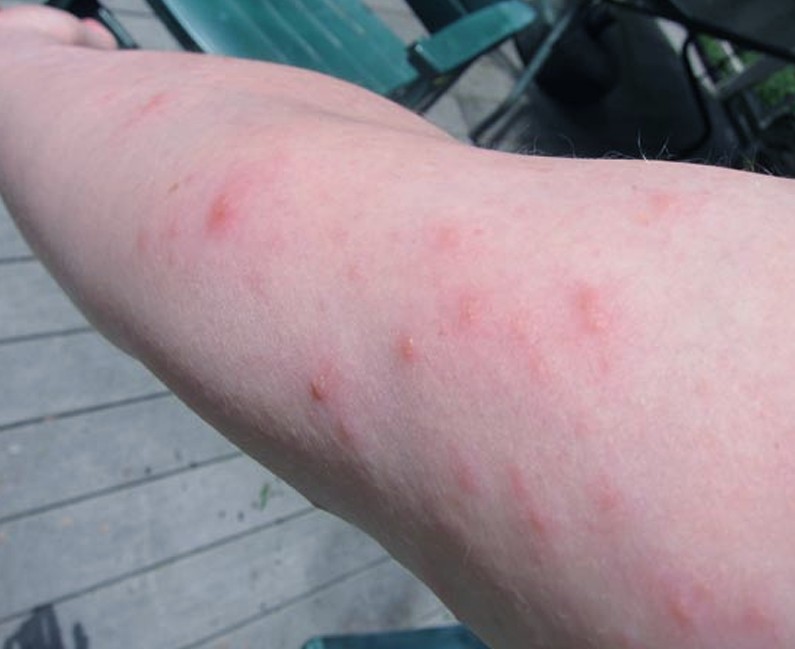We all experience a twitch in our bodies, at least once in our lives. The truth is that the involuntary palpitation can appear in any muscle, including in the muscles of the superior limb. The muscle keeps twitching for a short period of time and the fasciculations are quite noticeable. The muscle twitch in arm can be a response to muscle fatigue but it can also represent an involuntary response to other medical problems. What you need to understand is that arm muscle twitches are very common and their exact appearance mechanisms are not so well understood.
In many situations, the muscle twitch in arm appears spontaneously, with no apparent cause. This uncontrollable twitch can be quite annoying, especially since it can occur in any moment of the day, without previous knowledge. What science can tell us is that these fasciculations appear when the nerve fibers are irritated and they are benign. Sometimes, you cannot know for certain from where the nerve irritation has appeared, since the twitch in the arm appears all of a sudden.
As it was already mentioned, the muscle twitch in the arm is benign even though annoying. This does not stand as a symptom for a more serious disease but it can appear in a wide range of medical conditions. In rare cases, it can be a sign of a neurological disease and medical attention will be required.
Causes of Muscle Twitch in Arm
 These are the most common medical conditions in which the muscle twitch in the arm might appear. Keep in mind that in the majority of the cases, the muscle twitch appears spontaneously, without being linked to any of the diseases presented below. These are for the small majority of cases.
These are the most common medical conditions in which the muscle twitch in the arm might appear. Keep in mind that in the majority of the cases, the muscle twitch appears spontaneously, without being linked to any of the diseases presented below. These are for the small majority of cases.
- Anxiety
- Myopathy – the muscles are weakened and more prone to twitching, including in the arm
- Spinal muscular atrophy – the nerve connections to the muscles are affected, leading to the appearance of arm twitching, among other things
- Muscular dystrophy
- Nerve damage, affecting the muscle functioning
- ALS
- Multiple sclerosis
- Benign fasciculation syndrome
- Medication withdrawal
- Genetic disorders
- Insomnia
- Burn-out syndrome with extreme fatigue
- Vitamin and mineral deficiency (magnesium in particular)
- Medication side-effect – diuretics, corticosteroids or hormone supplements (estrogen)
- Parkinson’s disease
- Mononucleosis
- Thyroid disorders – low production of thyroid hormone (hypothyroidism)
- Increased caffeine intake
- Prolonged emotional and physical stress
- Pregnancy
- Excessive physical training
Treatment
These are the most common treatments and measures you can take in order to improve muscle arm twitching but also to prevent it from happening again.
- Massage therapy – massaging the area in which the twitching has appeared is a great idea, as not only it will relax the muscles but it will also relieve the actual twitching.
- Warming up before physical exercise will guarantee that the muscles are prepared for all that intensive effort and no twitching will appear in the arms.
- Heat applications are recommended after the appearance of the twitch in the arm, as it will soothe the muscle and it will reduce the twitching as well.
- Soaking the arm in warm (attention, not hot as it will increase the vascularization to the area too much) water can bring immediate relief in case of muscle arm twitching.
- Keep in mind that ice applications are completely forbidden. Even though you might be tempted to put ice on a muscle that twitches, this will only lead to muscle contractions and it will exacerbate the symptoms.
- Drinking the recommended amount of water every day is more than indicated. Our bodies contain a large percentage of water and dehydration can keep the muscles in a tensed state and thus they will be more prone to twitching. Reduce your caffeine intake, as this can lead to dehydration as well.
- Eat plenty of fresh fruits and vegetables in order to prevent vitamin and mineral deficiency.
- Choose foods that have a rich magnesium content, such as broccoli, spinach, beans, peas, nuts and seeds. Take magnesium supplements to complete the need for this important mineral.
- Learn deep breathing and muscle relaxation techniques in order to reduce some of the stress in your life.
- Exercise with measure, avoid excessive effort.
- Sleep at least eight hours per night, so that you allow your body to recover from emotional and physical stress.








Eye twitching can be a symptom of some neurological problems, but it’s pretty rare, and usually, there are other symptoms besides an eye twitch. If this is limited only to one eye, you can be pretty certain it is caused by muscle spasms in the eyelid. Eye strain, eye irritation, lack of sleep, and even slight dehydration can cause twitching. Also, sometimes a person can develop a subconscious habit of blinking this is usually a psychological thing. I’m not sure how you would figure out if this is just a habit. If it is a psychological thing, it’s probably not a good idea to call attention to it or make a big deal out of it.